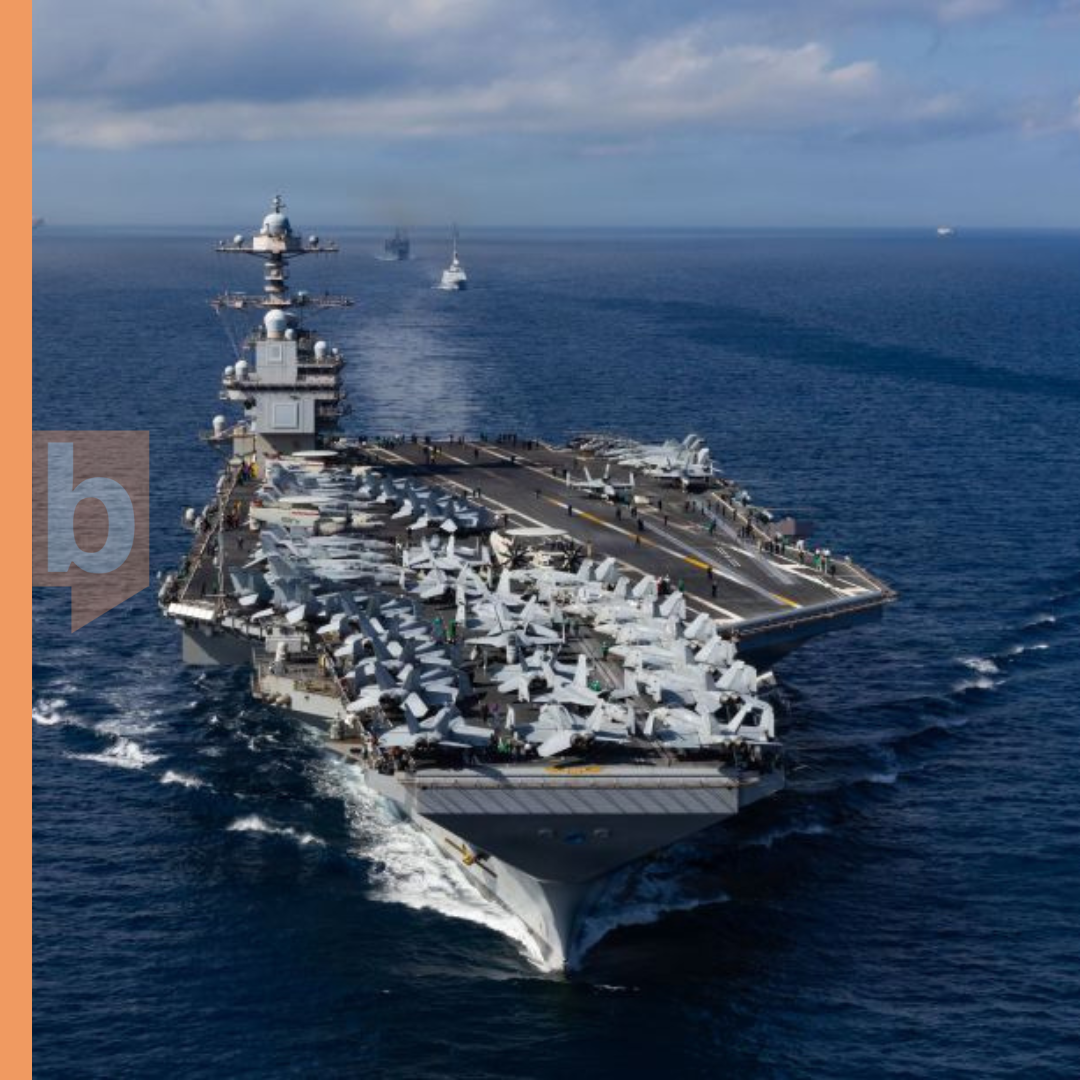CARIBBEA SEA--Tensions between the United States and Venezuela have entered a dangerous phase. Former Defense Secretary Leon Panetta warned that “one misstep” could trigger a small war. The United States has expanded its military footprint in the Caribbean, launched lethal strikes on vessels alleged to be smuggling narcotics, and authorized CIA covert operations inside Venezuela, according to multiple reports. The White House cites counter narcotics and counter terror objectives. Many analysts see a broader effort to project power, reassert regional control, and pressure for regime change in Caracas.
The Pentagon has deployed more than 4,500 Marines and sailors to the region, supported by the USS Gerald R. Ford strike group. Venezuelan officials call the buildup an act of aggression, and accuse Washington of fabricating a pretext for war. The recent maritime strikes, presented as law enforcement actions, resemble combat operations.
U.S. drug war claims face dispute. The United Nations Office on Drugs and Crime reports coca cultivation is concentrated in Colombia, Peru, and Bolivia. A recent U.S. Drug Enforcement Administration report did not list Venezuela among key cocaine routes. Despite this, the administration continues to label President Nicolás Maduro a narco terrorist to justify pressure and action.
Domestic politics shape the approach. Coverage has described an internal tilt toward hard line voices, with Senator Marco Rubio’s stance resonating with Cuban American and Venezuelan American voters in Florida. For President Donald Trump, visible force supports a law and order brand. He told CNN, “We are going to kill people that are bringing drugs into our country.”
Energy and strategy also matter. Venezuela holds the world’s largest proven oil reserves. Reporting indicates Caracas floated major concessions, including U.S. control over a dominant stake in its oil sector. Limited sanctions relief allowed Chevron to resume some operations. Hard line advisers pressed for confrontation rather than deals. Analysts frame the policy as a modern form of the Monroe Doctrine, aimed at reaffirming U.S. influence as China and Russia deepen ties in the region.
Signals point to regime change pressure rather than declared war. Officials have expressed hope that sustained sanctions, naval operations, and psychological pressure will fracture Maduro’s inner circle. The United States has posted a 50 million dollar bounty for Maduro’s capture. University of Chicago political scientist Michael Albertus told the BBC that even 500 million dollars would be unlikely to break the regime’s loyalty and surveillance system. The approach recalls U.S. playbooks used in Panama and Nicaragua, which mixed covert activity with overt military posturing and carried risks of overreach.
A limited conflict scenario remains plausible. Repositioning the Ford carrier group enables rapid strikes. Reporting says CIA activity has expanded inside Venezuela. UN experts have criticized recent maritime strikes as extrajudicial, raising legal concerns. The administration relies on counter narcotics authority rather than seeking a formal declaration of war, which allows military actions without a congressional war vote.
The risks are clear. A U.S. strike that kills Venezuelan military personnel could prompt retaliation and wider instability. The United Nations has voiced concern. A confrontation could damage U.S. standing in Latin America, strain relations with regional governments, and unsettle oil markets. Casualties or a drawn out campaign could invite comparisons to prior “forever wars.”
For all the saber-rattling, Trump’s circle insists he is “not in a rush.” According to a CNN report, officials say Trump’s attention is divided between his upcoming Asia trip and ongoing negotiations with Russia and Ukraine. Moreover, major operations inside Venezuela would still require congressional briefings and carry significant political and legal exposure.
There is also a strategic calculation that the threat of force may yield more leverage than its actual use. Maduro’s regime, economically strangled and diplomatically isolated, is already under enormous pressure. Escalation, rather than invasion, may be the real goal, keeping the Venezuelan leadership guessing while demonstrating U.S. resolve to both domestic and foreign audiences. Many think that what Washington seeks is not necessarily outright war but the appearance of readiness for it. As Dr. Christopher Sabatini of Chatham House told BBC, the build-up is designed to strike fear in Maduro’s military and inner circle rather than to occupy the country.
That signaling also serves other audiences such as Beijing, Moscow and Tehran, all of which have cultivated ties with Venezuela. By flexing in the Caribbean, Trump’s administration sends a broader message about American dominance in its hemisphere.
Join Our Community Today
Subscribe to our mailing list to be the first to receive
breaking news, updates, and more.






